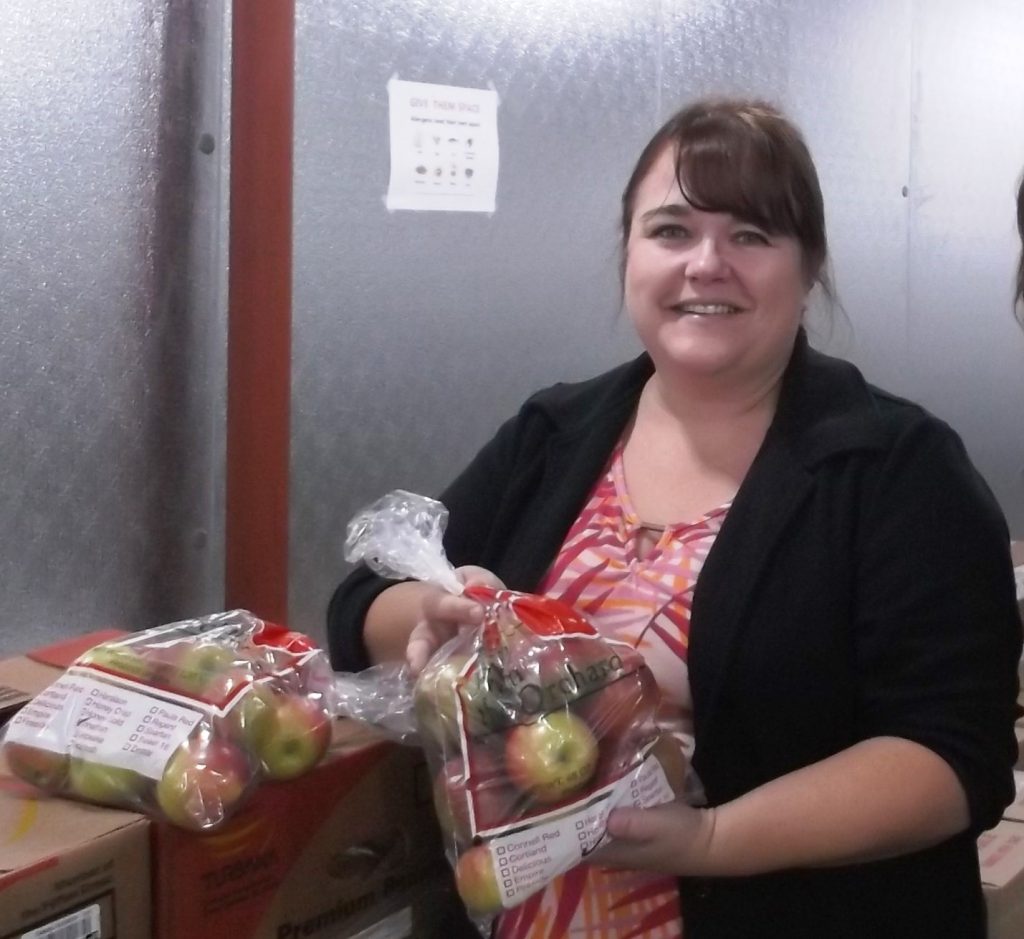By Patty Cantrell – New Growth, Food System Network Builder
Northeast Iowa has one of the last strongholds of small and medium-sized diversified farms in the state. Developing markets for those farms is what the Iowa Food Hub set out to do in 2012. Last year it sold $1.3 million worth of local foods to more than 150 wholesale buyers, with almost 80 percent of sales going back to its farmers and producers.
Today, the Iowa Food Hub continues to lead a sea-change in what wholesale food buyers and their customers can enjoy and expect. It is one of eight food hubs in Iowa now actively working through the Iowa Food Hub Managers Network to build regional supply networks and sales. Food hubs are enterprises organized to benefit local producers and communities by pooling and distributing their foods.
The statewide collaboration represents a next phase of growth in local and regional food supply networks, both in the five-state Heartland Regional Food Business Center region and across the country. It is responsible, in fact, for a surprising development in a wholesale food world dominated by industrial scale production, processing, and distribution.
Locally grown apples from the Driftless Region, among other food items, are becoming easier and easier for people across Iowa to enjoy and expect. The unique landscape, where Iowa, Minnesota and Wisconsin meet, is one of the best places in the Midwest for apple production.
Food hubs working together regionally are restoring the reputation of a fruit that has been bred more and more for shipping. This is how varieties like Red Delicious, for example, became the ubiquitous cardboard-tasting variety people “love to hate” after hailing in the late 1800s from northeast Iowa and named at the time for its uncommon sweetness.
Hub-to-Hub Sales
The Iowa Food Hub Managers Network is pulling together to develop routes and fulfill orders for a full range of local products: fruit, vegetables, meats, dairy, eggs and finished products like flour and syrups. It is advancing the purpose and the progress of the Iowa Food Hub, said co-founder Teresa Wiemerslage.

“In order for small and medium sized farms to have markets outside of direct-to-consumer outlets, such as farmers’ markets, they need a place to sell their food into the wholesale food chain,” she said.
The Iowa Food Hub Network is one of the projects of the Iowa Food Hub Managers Working Group. It is designed to increase products flowing among food hubs and to different areas of the state.
A leader in the group, the Iowa Food Hub has secured state USDA Specialty Crop Block Grant funding to back development of needed delivery and coordination infrastructure. The grant funding pays for weekly north-south and east-west deliveries among participating food hubs and cross-docking nodes along these routes.
Since beginning their collaboration two years ago, food hubs active in the Iowa Food Hub Network have more than doubled their inter-hub sales; from $142,000 in 2021 to $355,000 in 2023.
National Trend
The Iowa Food Hub Network is one of several capacity-building hub-to-hub efforts across the country.
The Northwest Food Hub Network and the Eastern Food Hub Collaborative are west and east coast examples. Another group beginning this work in the Heartland Center region is an emerging supply network involving food hubs in Missouri and northwest Arkansas.
Delivering farm fresh local food reliably for buyers was the priority on the table at a recent southwest Missouri meeting of farms and three local food distributors: The Kansas City Food Hub, Springfield (Missouri) Community Gardens, and Spring Creek Food Hub out of Springdale, Arkansas.
The group talked about joining forces from central Missouri to northwest Arkansas to fill gaps for one another should anyone come up short of product.
“As we team up, it’s possible some may win and some may lose on particular deals,” said Curtis Milsap of Springfield Missouri’s Milsap Farms. But the fact is, he said, looking around the room: “We are ‘local food;’ one way or another, it’s on us.”
80% of Sales to Farmers
Ultimately, the purpose of food hubs’ work to connect small and mid-size food producers with wholesale markets is to keep farmers and their communities in business, support sustainable farming practices for healthy ecosystems, and ensure fresh, nutrient-dense food for all. A series of national surveys provides an overview of how these local food intermediaries are organized and growing.
For the Iowa Food Hub, it takes commitment and careful management to return 80 percent of sales to some 150 farm suppliers in its 150-mile sourcing radius of rural northeast Iowa, Minnesota, and Wisconsin.
Iowa Food Hub members are also proud to make fresh and healthy food available to local communities. Forty percent of sales are to schools, colleges, and early child care sites, for example.
Participating in the Iowa Food Hub Managers Network is another way the Iowa Food Hub can build sales and benefits.
Based in a more remote rural area, it is relatively strong on supply of local foods but needs to reach larger population centers to move it, Wiemerslage said. “Hub to hub we can be more efficient in how we move food across the state.”
Infrastructure Investment
Support from Heartland Center partner Iowa State University Extension and Outreach has been key. Wiemerslage is a food system specialist with ISU Extension and Outreach. She provides technical assistance and evaluation support for the food hub collaboration project.
Recent federal funding to support local and regional food systems has also been instrumental in helping supply networks build collaboration and delivery infrastructure, according to a review by the National Sustainable Agriculture Coalition.
Funding has gone to support local and regional food purchases by schools and other community-based buyers. The Iowa Food Hub Network is in place and growing as a way to reliably source and move that food.
The Local Food Purchase Assistance Program is one of these investments. It is showing value for producers and consumers, according to a Wallace Center report. Each state has received LFPA funding to purchase and move locally produced foods into food assistance efforts.
Patrick Fitzgerald is Program Coordinator for the Missouri Department of Social Services’ Food Distribution Unit, which manages the state’s LFPA program. He said the investment can build long-term capacity: “It’s about strengthening local farmers and food producers and building business relationships that can continue on after the grant ends.”
Full Circle Innovation
Dan Bigbee of Fassnight Creek Farm in Springfield, Missouri, said the LFPA program is making a big difference for his farm, his family, and his community.
Bigbee has been farming for 38 years on land in the city that has been in agriculture for 100 years. He is one of the farmers who attended the recent food hub collaboration meeting in Springfield, Missouri.
He credits LFPA program purchases with affording this group of farms and food hubs the opportunity to explore and work out details of building a regional supply and distribution network.
The results on the ground for community members are especially important to Bigbee.
“The LFPA is taking high-quality first-rate produce and getting it to people who might not have the ability to even try it,” he said.
The full-circle effect is much like orchard-fresh apples from northeast Iowa replacing some of the tired Red Delicious apples in Iowa’s school cafeterias. A focus on building local food producers and delivering new tastes and health benefits to consumers is fueling food supply chain innovation that can bring small farms, dis-invested communities, and even lost food flavor back to life.

